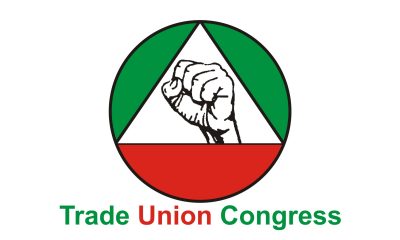Oil & Energy
Youth Want Brass LNG, Oloibiri Oil Museum Developed
Hundreds of youth of the South South zone of Nigeria rose from an extraordinary meeting with a call on the Federal Government to expedite action towards full development of the Brass Liquefied Natural Gas plant and the Oloibiri Oil Museum, both in Bayelsa State.
The youth, under the aegis of South South Peoples Assembly (SSYA), who met in Port Harcourt, the Rivers State capital, expressed dissatisfaction over what the body described as a snail speed in the development of the Brass LNG facility, which has over the decades been on the drawing board, and appealed to President Goodluck Jonathan to ensure that work on the project was fast tracked in view of its importance to the economy of the region, and indeed, the nation.
National Chairman of the body, Barrister Felix Amadi, who said this, also noted that past administrations in the country did not show enough seriousness in the development of the Oloibiri Oil Museum, and urged the present government to complete the museum without delay.
Amadi stressed that when fully developed, the museum would help in archiving records on oil exploration and production activities in the country, which could be easily retrieved and referenced by scholars, researchers, tourists, among others.
“Apart from keeping important records of oil exploration activities, the project would also expand employment opportunities for youth of the South South zone, which has high unemployment rate”, he said.
Amadi, who commended President Jonathan’s administration for ensuring the passage of both the Freedom of Information Bill and the National Minimum Wage Bill and for assenting to them without delay, said the problem of petroleum scarcity as well as increasing the power generation capacity of the country were noteworthy.
He expressed confidence in the ability of the Jonathan-led administration to provide a permanent solution to the lame power supply situation and the leadership problem that had for long frustrated the nation, saying that his swift action to end petroleum products scarcity has shown that he could muster the political will to address the mountain of problems besetting the country.
The youth body, he said would continue to partner with organized private sector and government agencies towards sustaining the peace that has been achieved so far in the country, stressing that the current peaceful atmosphere, if sustained, would encourage both local and foreign investors to set up companies that would help employ the youth.
The body, however, advised the present administration to liberalise power distribution to enable states and private investors to intervene by investing massively in the distribution sub-sector as a means of solving the nation’s nightmare in power supply.
Amadi suggested that states and the Federal Government could adopt geopolitical zone approach in the industrialization effort to ensure that the South South gets its fair share of the nation’s wealth and resources.
Commenting on the suggestion from some quarters for the merging of the Niger Delta Development Commission (NDDC) with the Ministry of Niger Delta Affairs, the group described those canvassing the idea as enemies of the zone, explaining that the ministry and the commission were creations of the laws of the land to perform different functions in the region.
He said instead of scrapping NDDC, more funds should be given to it while more development commissions should be established to take care of the peculiar environmental, ecological, deltaic and coastal nature of the region in fashioning socio-economic development programmes and projects to fast track the rebirth and reinvigoration of communities in the region.
Chris Oluoh
Oil & Energy
FG Woos IOCs On Energy Growth
The Federal Government has expressed optimism in attracting more investments by International Oil Companies (IOCs) into Nigeria to foster growth and sustainability in the energy sector.
This is as some IOCs, particularly Shell and TotalEnergies, had announced plans to divest some of their assets from the country.
Recall that Shell in January, 2024 had said it would sell the Shell Petroleum Development Company of Nigeria Limited (SPDC) to Renaissance.
According to the Minister of State for Petroleum Resources (Oil), Heineken Lokpobiri, increasing investments by IOCs as well as boosting crude production to enhancing Nigeria’s position as a leading player in the global energy market, are the key objectives of the Government.
Lokpobiri emphasized the Ministry’s willingness to collaborate with State Governments, particularly Bayelsa State, in advancing energy sector transformation efforts.
The Minister, who stressed the importance of cooperation in achieving shared goals said, “we are open to partnerships with Bayelsa State Government for mutual progress”.
In response to Governor Douye Diri’s appeal for Ministry intervention in restoring the Atala Oil Field belonging to Bayelsa State, the Minister assured prompt attention to the matter.
He said, “We will look into the issue promptly and ensure fairness and equity in addressing state concerns”.
Lokpobiri explained that the Bayelsa State Governor, Douyi Diri’s visit reaffirmed the commitment of both the Federal and State Government’s readiness to work together towards a sustainable, inclusive, and prosperous energy future for Nigeria.
While speaking, Governor Diri commended the Minister for his remarkable performance in revitalisng the nation’s energy sector.
Oil & Energy
Your Investment Is Safe, FG Tells Investors In Gas
The Federal Government has assured investors in the nation’s gas sector of the security and safety of their investments.
Minister of State for Petroleum Resources (Gas), Ekperikpe Ekpo, gave the assurance while hosting top officials of Shanghai Huayi Energy Chemical Company Group of China (HUAYI) and China Road and Bridge Corporation, who are strategic investors in Brass Methanol and Gas Hub Project in Bayelsa State.
The Minister in a statement stressed that Nigeria was open for investments and investors, insisting that present and prospective foreign investors have no need to entertain fear on the safety of their investment.
Describing the Brass project as one critical project of the President Bola Tinubu-led administration, Ekpo said.
“The Federal Government is committed to developing Nigeria’s gas reserves through projects such as the Brass Methanol project, which presents an opportunity for the diversification of Nigeria’s economy.
“It is for this and other reasons that the project has been accorded the significant concessions (or support) that it enjoys from the government.
“Let me, therefore, assure you of the strong commitment of our government to the security and safety of yours and other investments as we have continually done for similar Chinese investments in Nigeria through the years”, he added.
Ekpo further tasked investors and contractors working on the project to double their efforts, saying, “I want to see this project running for the good of Nigeria and its investors”.
Earlier in his speech, Leader of the Chinese delegation, Mr Zheng Bi Jun, said the visit to the country was to carry out feasibility studies for investments in methanol projects.
On his part, the Managing Director of Brass Fertiliser and Petrochemical Ltd, Mr Ben Okoye, expressed optimism in partnering with genuine investors on the project.
Oil & Energy
Oil Prices Record Second Monthly Gain
Crude oil prices recently logged their second monthly gain in a row as OPEC+ extended their supply curb deal until the end of Q2 2024.
The gains have been considerable, with WTI adding about $7 per barrel over the month of February.
Yet a lot of analysts remain bearish about the commodity’s prospects. In fact, they believe that there is enough oil supply globally to keep Brent around $81 this year and WTI at some $76.50, according to a Reuters poll.
Yet, like last year in U.S. shale showed, there is always the possibility of a major surprise.
According to the respondents in that poll, what’s keeping prices tame is, first, the fact that the Red Sea crisis has not yet affected oil shipments in the region, thanks to alternative routes.
The second reason cited by the analysts is OPEC+ spare capacity, which has increased, thanks to the cuts.
“Spare capacity has reached a multi-year high, which will keep overall market sentiment under pressure over the coming months”, senior analyst, Florian Grunberger, told Reuters.
The perception of ample spare capacity is definitely one factor keeping traders and analysts bearish as they assume this capacity would be put into operation as soon as the market needs it. This may well be an incorrect assumption.
Saudi Arabia and OPEC have given multiple signs that they would only release more production if prices are to their liking, and if cuts are getting extended, then current prices are not to OPEC’s liking yet.
There is more, too. The Saudis, which are cutting the most and have the greatest spare capacity at around 3 million barrels daily right now, are acutely aware that the moment they release additional supply, prices will plunge.
Therefore, the chance of Saudi cuts being reversed anytime soon is pretty slim.
Then there is the U.S. oil production factor. Last year, analysts expected modest output additions from the shale patch because the rig count remained consistently lower than what it was during the strongest shale boom years.
That assumption proved wrong as drillers made substantial gains in well productivity that pushed total production to yet another record.
Perhaps a bit oddly, analysts are once again making a bold assumption for this year: that the productivity gains will continue at the same rate this year as well.
The Energy Information Administration disagrees. In its latest Short-Term Energy Outlook, the authority estimated that U.S. oil output had reached a record high of 13.3 million barrels daily that in January fell to 12.6 million bpd due to harsh winter weather.
For the rest of the year, however, the EIA has forecast a production level remaining around the December record, which will only be broken in February 2025.
Oil demand, meanwhile, will be growing. Wood Mackenzie recently predicted 2024 demand growth at 1.9 million barrels daily.
OPEC sees this year’s demand growth at 2.25 million barrels daily. The IEA is, as usual, the most modest in its expectations, seeing 2024 demand for oil grow by 1.2 million bpd.
With OPEC+ keeping a lid on production and U.S. production remaining largely flat on 2023, if the EIA is correct, a tightening of the supply situation is only a matter of time. Indeed, some are predicting that already.
Natural resource-focused investors Goehring and Rozencwajg recently released their latest market outlook, in which they warned that the oil market may already be in a structural deficit, to manifest later this year.
They also noted a change in the methodology that the EIA uses to estimate oil production, which may well have led to a serious overestimation of production growth.
The discrepancy between actual and reported production, Goehring and Rozencwajg said, could be so significant that the EIA may be estimating growth where there’s a production decline.
So, on the one hand, some pretty important assumptions are being made about demand, namely, that it will grow more slowly this year than it did last year.
This assumption is based on another one, by the way, and this is the assumption that EV sales will rise as strongly as they did last year, when they failed to make a dent in oil demand growth, and kill some oil demand.
On the other hand, there is the assumption that U.S. drillers will keep drilling like they did last year. What would motivate such a development is unclear, besides the expectation that Europe will take in even more U.S. crude this year than it already is.
This is a much safer assumption than the one about demand, by the way. And yet, there are indications from the U.S. oil industry that there will be no pumping at will this year. There will be more production discipline.
Predicting oil prices accurately, even over the shortest of periods, is as safe as flipping a coin. With the number of variables at play at any moment, accurate predictions are usually little more than a fluke, especially when perceptions play such an outsized role in price movements.
One thing is for sure, though. There may be surprises this year in oil.
lrina Slav
Slav writes for Oilprice.com.
-

 News4 days ago
News4 days ago524 Firms Bid For NRC’s 2024 Capital Procurement -Okhiria
-
Politics4 days ago
How We Saved N2.3bn From LG Reforms – Diri
-
Sports4 days ago
WADA Plans Review Of Failed Tests
-

 News13 hours ago
News13 hours agoFubara Wants Rivers Youths To Acquire Useful Skills
-

 Maritime12 hours ago
Maritime12 hours agoUnfair Treatment Of Seafarers Bothers IMO
-

 News4 days ago
News4 days agoTUC Wants FG To Pay Wage Award For March, April
-
Nation4 days ago
Fubara Has Rekindled Rivers Hope-Former Envoy
-

 Rivers16 hours ago
Rivers16 hours agoCommittee Concludes Open Verification Of MIle 1 Market Allotees

